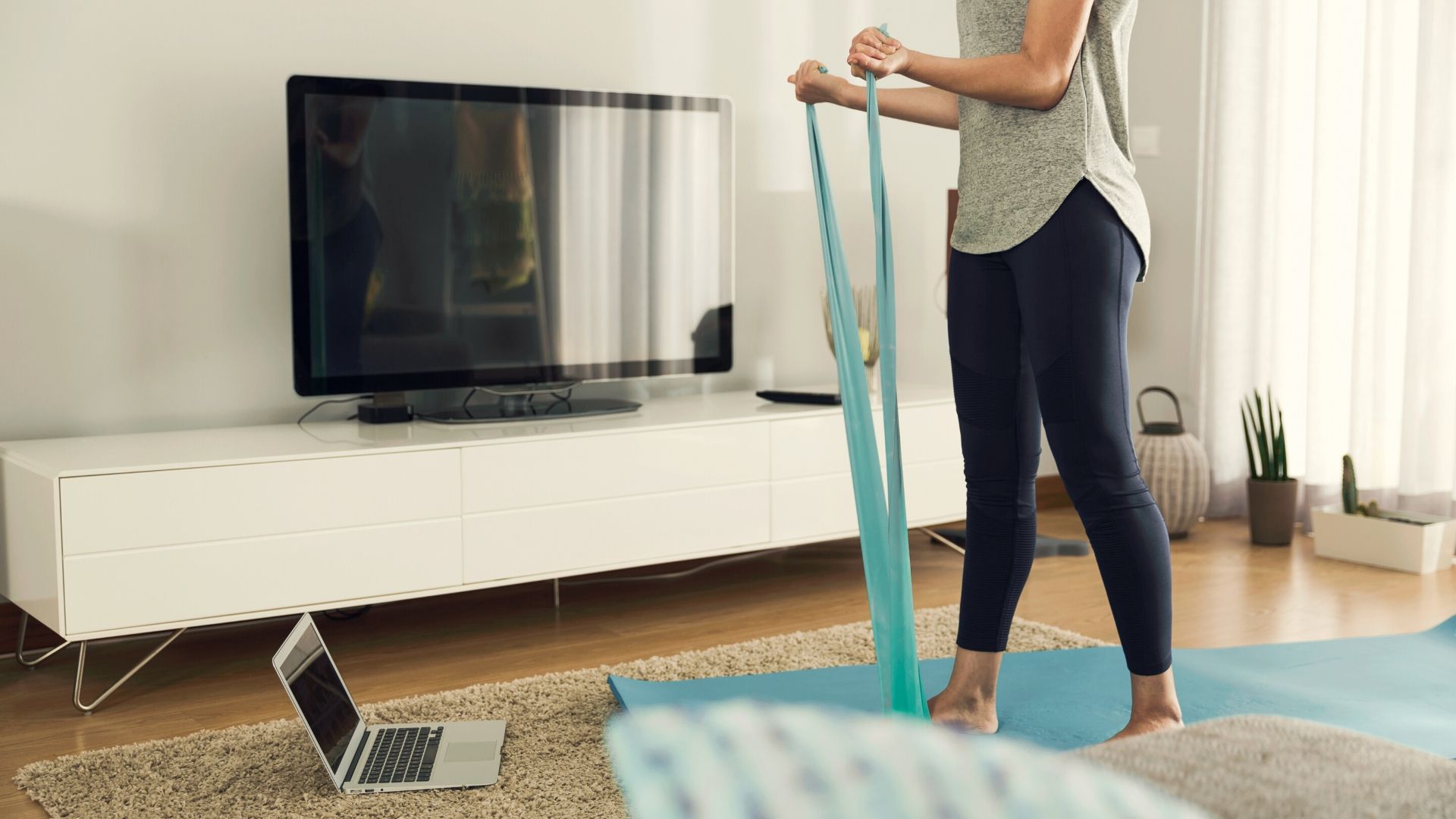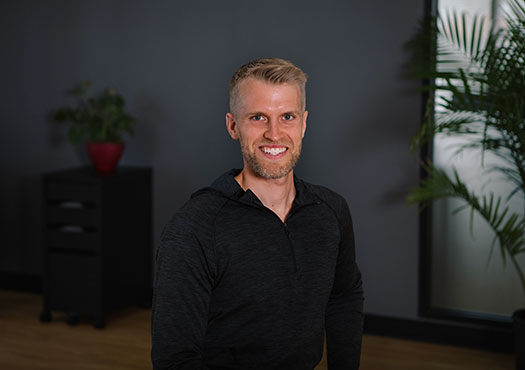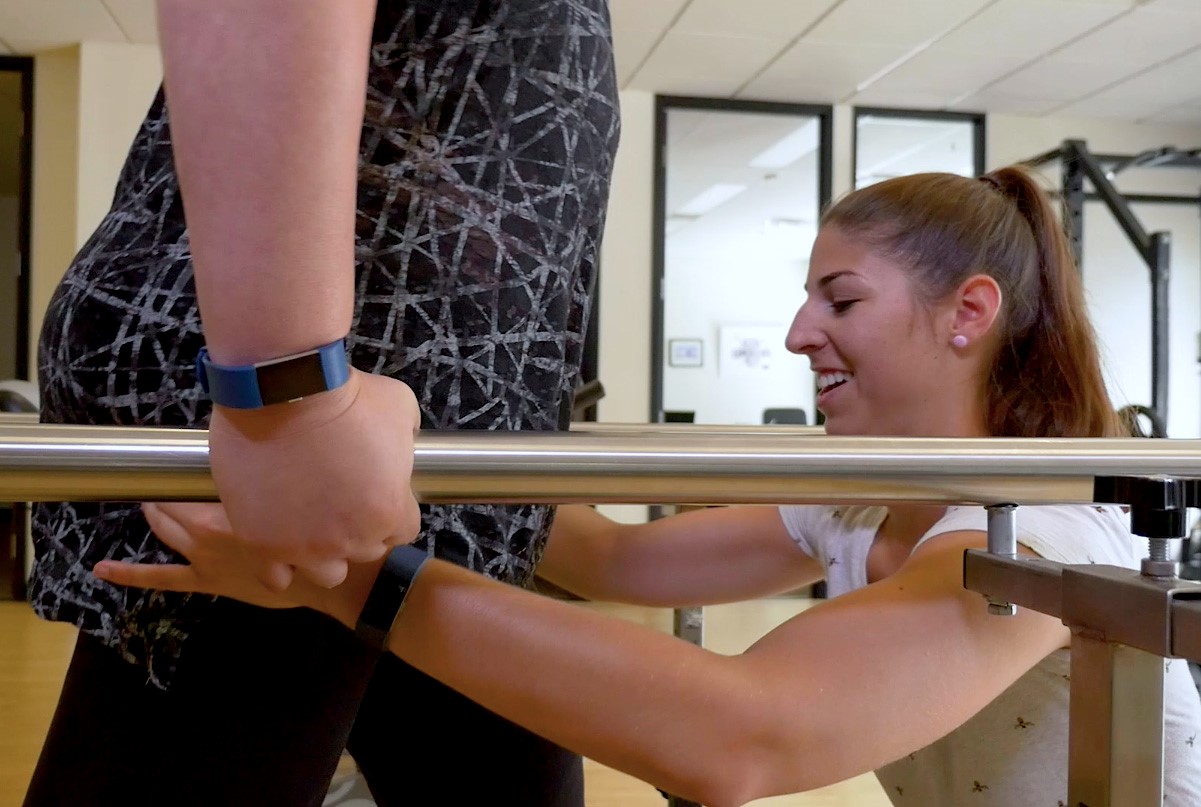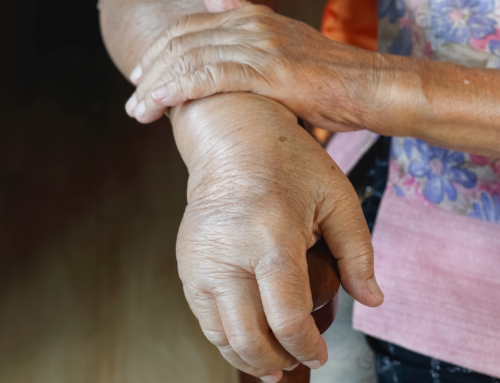The Covid-19 pandemic has changed almost every aspect of our lives and communities across Canada and the globe — from the way we work, learn, eat and shop to the way we administer and receive healthcare.
At Propel Physiotherapy’s, we had to change and innovate our physiotherapy care in light of the recommendations by our professional college that we only see clients in person if determined emergency care. From mid-March to the beginning of June, all other services had to be provided by tele- or virtual rehab care, where possible.
Peterborough Physiotherapist Adapts Business to Pandemic
As the senior physiotherapist and operations manager of Propel’s new mobile clinic in Peterborough, this change came with many challenges for my clients and for me as therapists. Ultimately, it has led all physiotherapists to be more creative and to think outside of the box.
Some of the challenges in transitioning to virtual rehab at the start of this pandemic that I encountered included client acceptance and comfort level, ensuring accessibility and privacy of appropriate virtual software platforms, and trying to recreate the physiotherapy atmosphere in the client’s home.
As is the case with most changes and new experiences, clients and therapists alike had some questions about this new process, like:
How could physiotherapy be carried out over a video call?
How am I going to feel better if I don’t have the in-person experience that I’m used to?
However, in my experience during the last couple of months, it quickly became evident that this new form of physiotherapy does work, and has the potential to achieve similar outcomes as face-to-face therapy.
Due to the nature of virtual rehab sessions, I have found that clients are extremely engaged in the exercise and education aspect of their rehab. And in a situation like this, where we simply can not address the client with manual therapy, exercise and education are two of our greatest tools!
This new method of delivering physiotherapy has helped our clients to become more active in their own recovery. I have found clients asking many more clarifying questions about the recommended amount of reps and sets, things to avoid or do more often, and what things THEY can do to improve THEIR recovery!
For example, after a discussion with one of my clients about the benefits of exercise during this stressful time, she started problem-solving with me around different ways she could incorporate exercise into her daily routine. Even though we had discussed this many times before, I believe that her own problem-solving stimulated action more than it would have if she were in the clinic setting. And I think this is going to be a lasting change for her!
Virtual Rehabilitation Allows More Collaboration & Communication
Another silver lining this pandemic has created is more overlap sessions with our rehab team members. As the set-up for virtual rehab sessions can often be challenging for some of our clients, one strategy we have used is to team up for these sessions.
By calling a client with their family member, Personal Support Worker (PSW), Rehabilitation Support Worker (RSW), or another rehab team member, we get to communicate more directly as a team. This has proven valuable in helping clients set-up the virtual sessions, as well as ensuring effective collaboration.
Virtual rehab has also given me more time that allows me to communicate and collaborate more effectively with other team members such as Case Managers, Occupational Therapists, etc., to ensure we are getting our clients the best care possible.
Physiotherapy Clients Adopt New Behaviours and Skills
Another obstacle that some clients have shared is that they do not have access to their regular gym or exercise equipment. Again, this has created an opportunity to problem-solve and explore different options which we had previously not thought about.
Think about how easy it is to avoid doing exercise simply because going to the gym (or clinic) is a deterrent or a barrier. With the current situation, we have been forced to turn any available space in our home into our own personal home gyms!
This new behaviour has the potential to have a positive lasting effect of giving people another option to exercise when they don’t feel like leaving the house. By using items around the house and/or supplementing with items purchased online, I have worked with many of my clients to perfect their home gym setup.
It can be as simple as a couple of inexpensive exercise bands or even just a couple of bottles filled with water, and you can work with your physiotherapist on many of the same exercises that you would normally do at your gym.
Lastly, with some of us having extra time on our hands and no access to the gym, it has given me and some of my clients the opportunity to develop another aspect of our fitness or a new skill. For me personally, it has been running while pushing a stroller!
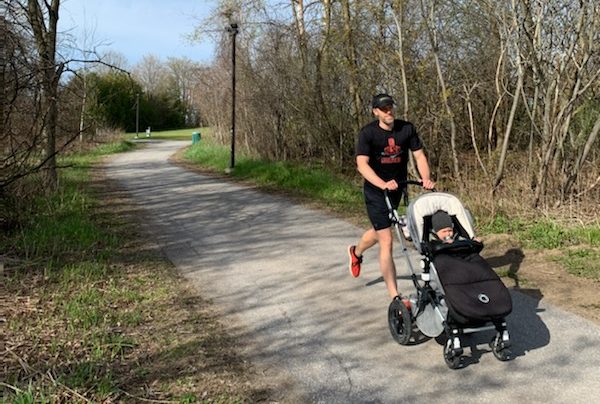
Before this pandemic, I had tried running with my son in the stroller a few times but was limited to shorter distances and slower speeds. However, with practice and repetition, I have gradually worked myself up to covering similar distances and speeds that I was doing without the stroller!
One of my clients had a similar story about trying something new. Due to the extra time on his hands, he has decided to focus on developing his basketball skills. It is something he’s always wanted to do but has continually put off, partly due to the fact that he has suffered a past knee injury. With guidance from me, he has set up basketball drills, jumping workouts, and exercises to develop improved knee proprioception.
Under the current situation, virtual rehab sessions are perfect for thinking about building new skills, trying a new exercise program, or simply addressing that nagging injury that has been with you for longer than you can remember!
Many of us have the tendency to delay the professional assessment of an injury because our lives are too busy or with the thought that with time it will simply get better. This can also lead to avoidance of certain activities or exercises altogether because we know it will cause pain.
I have had multiple clients ask for virtual rehab sessions to address these types of injuries, because we simply have the time and focus to address it now! Whether you have a nagging injury, want to learn a new skill, have a fitness goal you want to achieve or need assistance setting up a home gym and fitness routine, contact me in Peterborough or one of my colleagues in our Etobicoke or Pickering locations for a complementary consultation.
Written by
FOLLOW US!
OUR SERVICES
RECENT POSTS
CLASSES
[fusion_events cat_slug=”” past_events=”no” number_posts=”1″ columns=”1″ column_spacing=”” picture_size=”cover” padding_top=”” padding_right=”” padding_bottom=”” padding_left=”” content_length=”” excerpt_length=”” strip_html=”” pagination=”no” hide_on_mobile=”small-visibility,medium-visibility,large-visibility” class=”” id=”” /]

